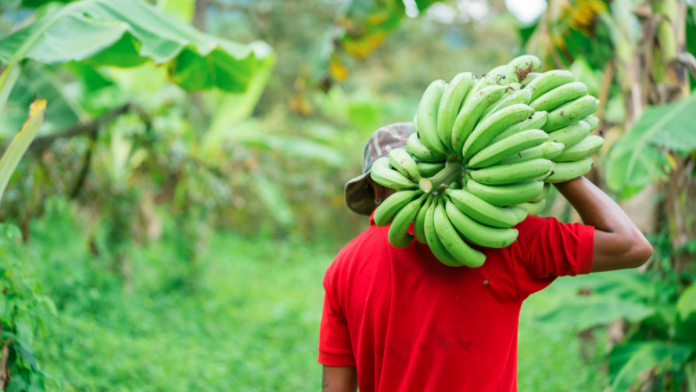News in brief:
– Nigeria launches nationwide dry season farming to boost food production and reduce wheat import dependency.
– Government distributes high yielding crop seeds and fertilisers to farmers, assures support for irrigation facilities and other resources.
The Federal Government of Nigeria has commenced nationwide dry season production activities to bolster food production and reduce the country’s wheat import dependency.
The Federal Minister for Agriculture and Food Security (FMAFS), Senator Abubakar Kyari, made this announcement during a tour of the Apapa Bulk Terminal Facility of Flour Mills of Nigeria Plc. He was inspecting the offloading and dispatch of 6,750 million tonnes (MT) of high yielding certified wheat seeds imported into the country through the Flour Millers Association of Nigeria (FMAN).
Kyari said that the choice of the seed variety, Borlaug 100, shows the Federal Government’s resolve to drastically enhance wheat production in Nigeria. The seed variety has been giving impressive results in other countries with its high-yield potential and drought resistance, the former quality is especially important during the dry season.
He explained that the dry season farming initiative is part of the Federal Government’s overall agricultural sector transformation strategy, which is aimed at ensuring food security and availability for all Nigerians.
Also, he urged farmers to take advantage of the initiative by planting high yielding and drought-resistant crop varieties, as well as adopting good agricultural practices.
Furthermore, the minister assured farmers of the government’s commitment to providing them with the necessary support, including access to inputs, finance, and extension services.
The FMAFS has already distributed high yielding crop seeds and fertilisers to farmers across the country as part of the dry season farming initiative. It is also working with partners to provide farmers with access to irrigation facilities and other resources.
The dry season farming initiative is expected to boost food production in Nigeria and help to reduce the country’s reliance on imports.



